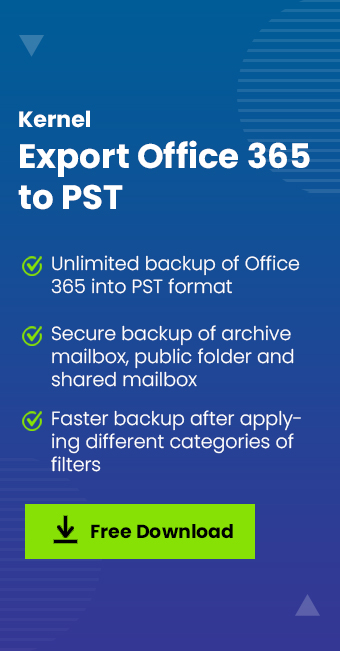Read time 6 minutes
Professional Managed Service Provider(s) are hired by small and medium-scale businesses to alleviate their need for IT infrastructure and end-user systems by providing them with the best solutions which work economically. They work on behalf of the organization to manage daily services such that they don’t have to worry about any downtimes or interruptions.
If you are a Managed Service Provider who handles the IT resources of organizations, then you must be aware that organizations are rapidly moving towards cloud platforms. Businesses are making the most of Microsoft 365 for their daily requirements since it provides Exchange Online, SharePoint Online, Skype for Business, and various other applications. It gets tough for the MSP to manage multiple Office 365 accounts for different businesses.
When the cloud data increases in size or gets old, organizations think of taking backup Office 365 to keep the mailbox data in a secure place. In that case, as their MSP, you will have to find a reliable mechanism to back up the client’s data. In such a situation, there are various challenges for a Managed Service Provider regarding cloud technology, and some of them are here –
1- Skill shortage
Generally, the MSPs provide their service to smaller or medium-sized organizations that require only limited financial resources to hire skillful technicians or subscribe to services. On the other hand, Microsoft 365 is a vast platform involving many technicalities. And there is a significant shortage of technicians skilled in cloud computing platforms. So, MSPs have to provide affordable cloud services to their clients.
2- Migration of data to the cloud
While migrating the onsite IT resources to the cloud, many challenges can affect the process and corrupt the data. So, the MSP must be prepared to deal with the worst situations while migrating data to the cloud.
3- Managing multiple services
While using the cloud to cloud backup platform, every business has different requirements based on size, industry, clientele, and finances. Also, they may require multiple services like emailing, content management, etc. That’s when organizations require an MSP which fits all their needs of providing numerous services. And the clients stick with them and avoid going to another service provider for a different service.
4- Understanding the client’s needs
Each firm is different from others, even if they work in the same domain, so the MSP must be flexible with their services to create multiple plans for each client and fulfill their needs. If they want to put their data on the cloud and manage it, then the MSP needs to create a migration plan, maintain their data, provide appropriate service, and restore it when required.
5- Choose the best tool or service
Every MSP should have adequate tools available to complete any desired action at any stage according to the business requirement. While solving an issue, the MSP should take care of using professional tools to fulfill the need of the client’s business. These tools may be freely available from reliable sources or experienced developers.
If you are managing the Office 365 platform of an organization, and there is a constant flow of email messages, contacts, notes, attachments, and reports. While taking a backup of such data, you need to proceed with many precautions. Although there are some manual methods you can apply to take a backup, they do not guarantee the security of data, and a single misstep can either delete or corrupt the data.
To save yourself from such difficulties, you can use the Kernel Export Office 365 to PST Tool which is designed to take backup of Microsoft 365 mailboxes and save it in the PST format. This PST file is readily usable in the Outlook application. Here is the complete procedure for taking a backup with the KernelApps backup tool –
- Install the software and launch it. Click on the Add button to add the Office 365 mailbox.
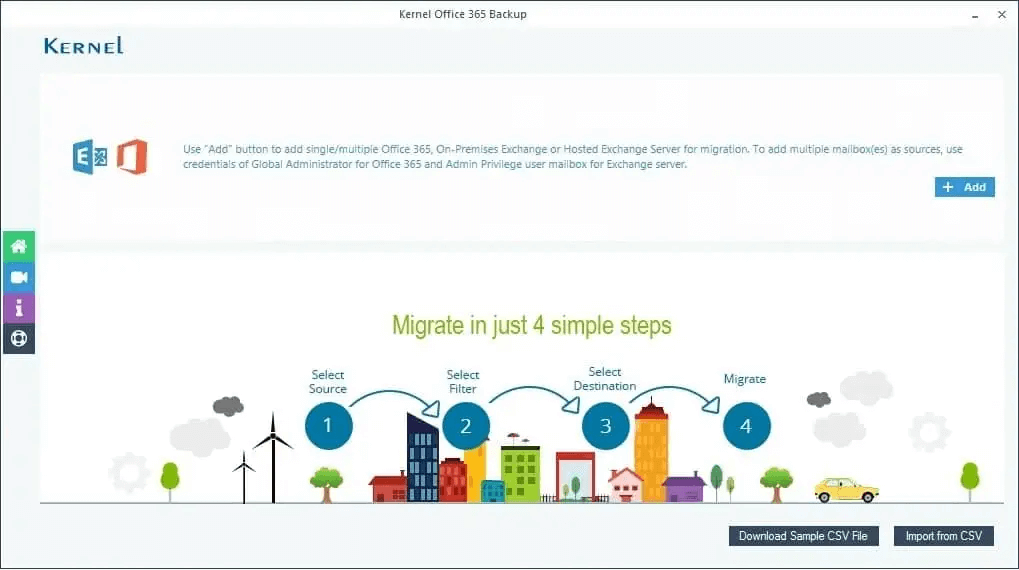
- Input the Office 365 credentials and click Add.
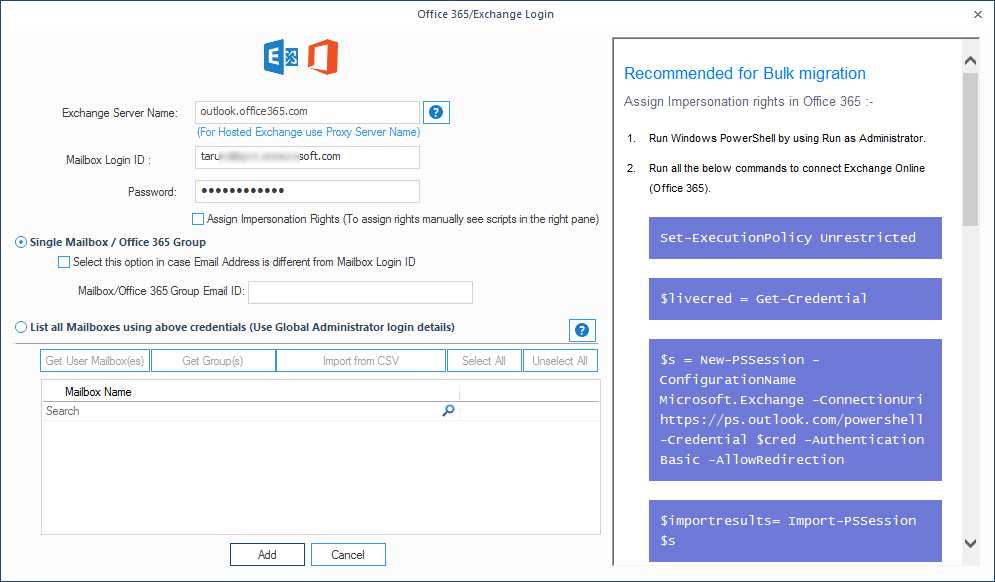
- After adding the mailbox, click Set Filter and Migrate button to move ahead.
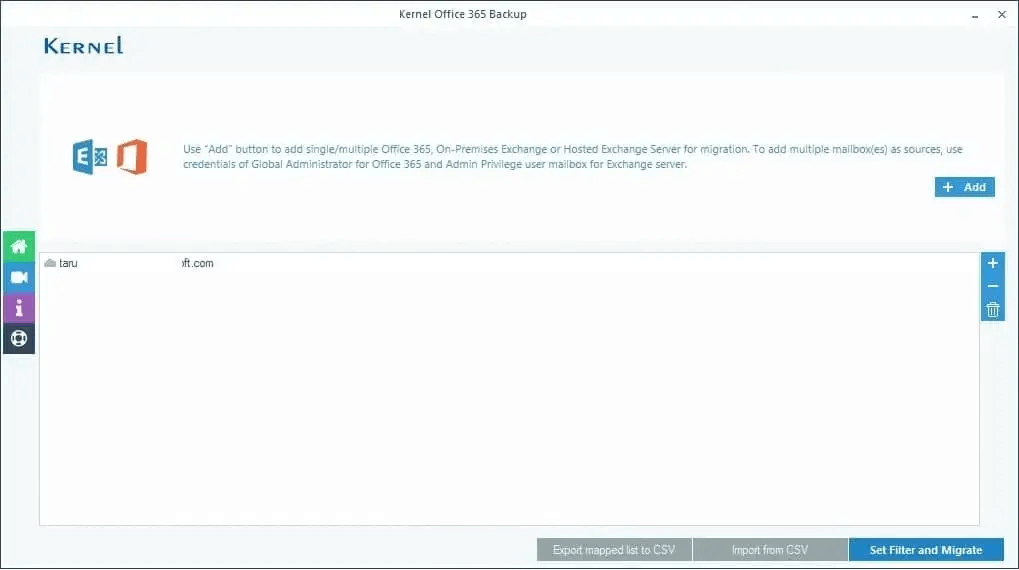
- Select among Mailbox, Archive Mailbox, and Public folder which you want to take a backup.
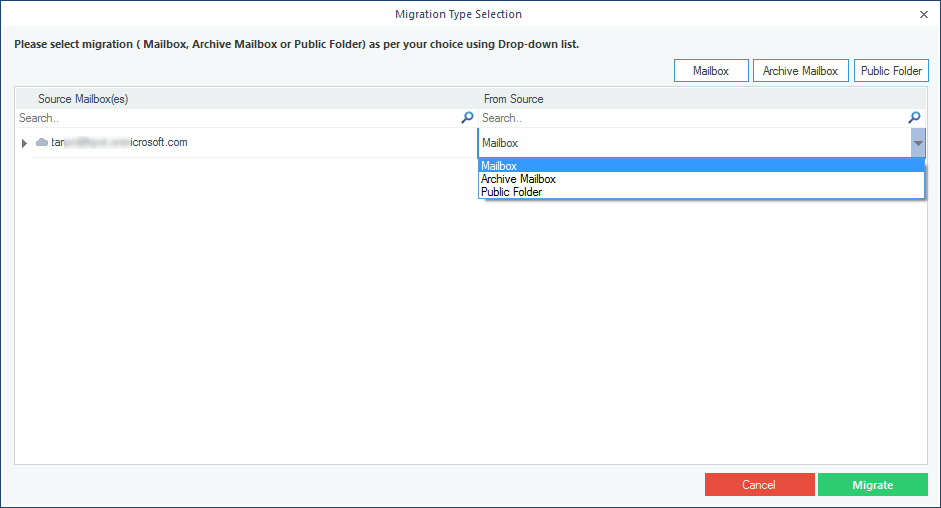
- In the Filter Selection window, choose the filtering options as required:
- Select the folders to migrate.
- Provide a date range to filter items.
- Select the item types that are to be migrated.
- Exclude Deleted item folder from migration if needed.
- Exclude empty folders from the migration if needed.
- Provide a folder name (to save the data with hierarchy inside a mailbox folder).
- Select an upper time limit for migration (the migration will be rejected if it exceeds this time limit).
- Check the box to skip the already exported data.
Finally click I am OK, Start Migration.
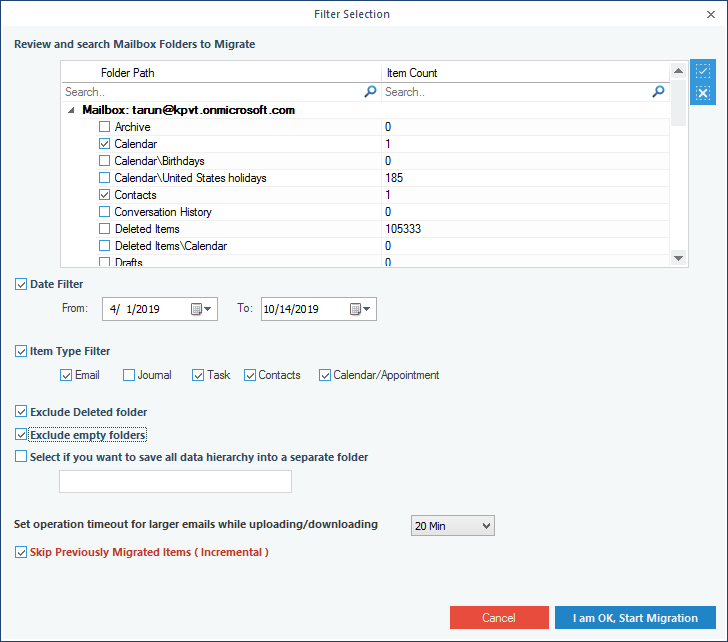
- Select PST as the saving option and click OK.
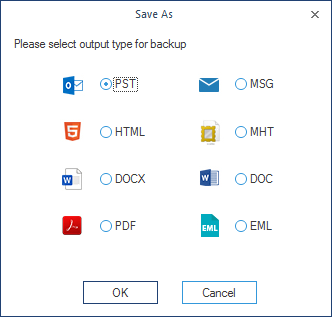
- Browse and select the destination for the PST file.
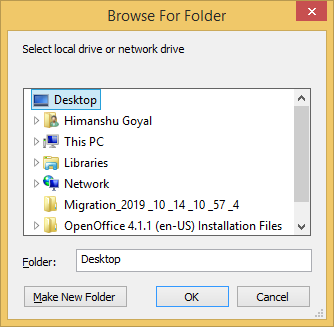
- The tool will provide a successful message once the migration is complete. Click OK.
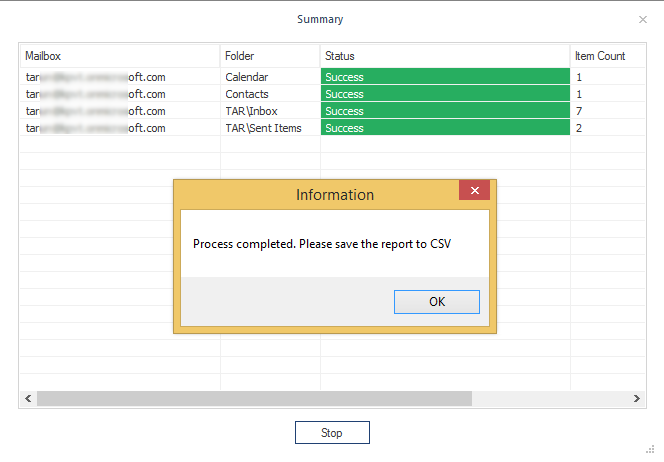
- You can save the migration report by clicking the Save report to CSV option.
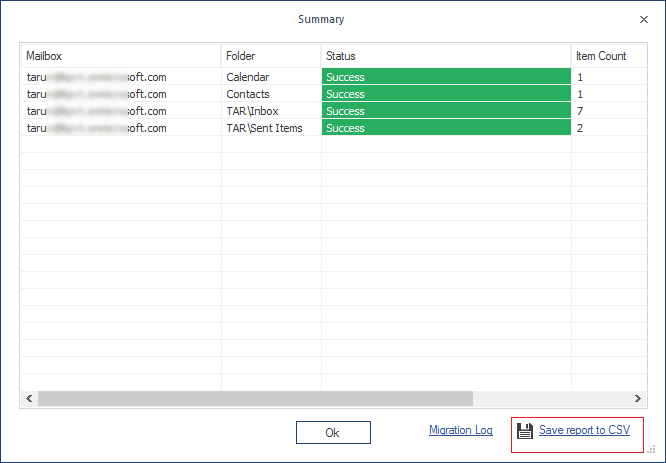
Conclusion
If you are an MSP working for multiple businesses, you can export Office 365 mailboxes to PST using an appropriate Office 365 tool to backup all the essential data. The tool hides all the complexities and brings you only the required information to complete the procedure. It is a highly beneficial tool for all MSPs who are managing the Office 365 assets of their clients. They can use it to safely backup their client’s data at a secure location.





